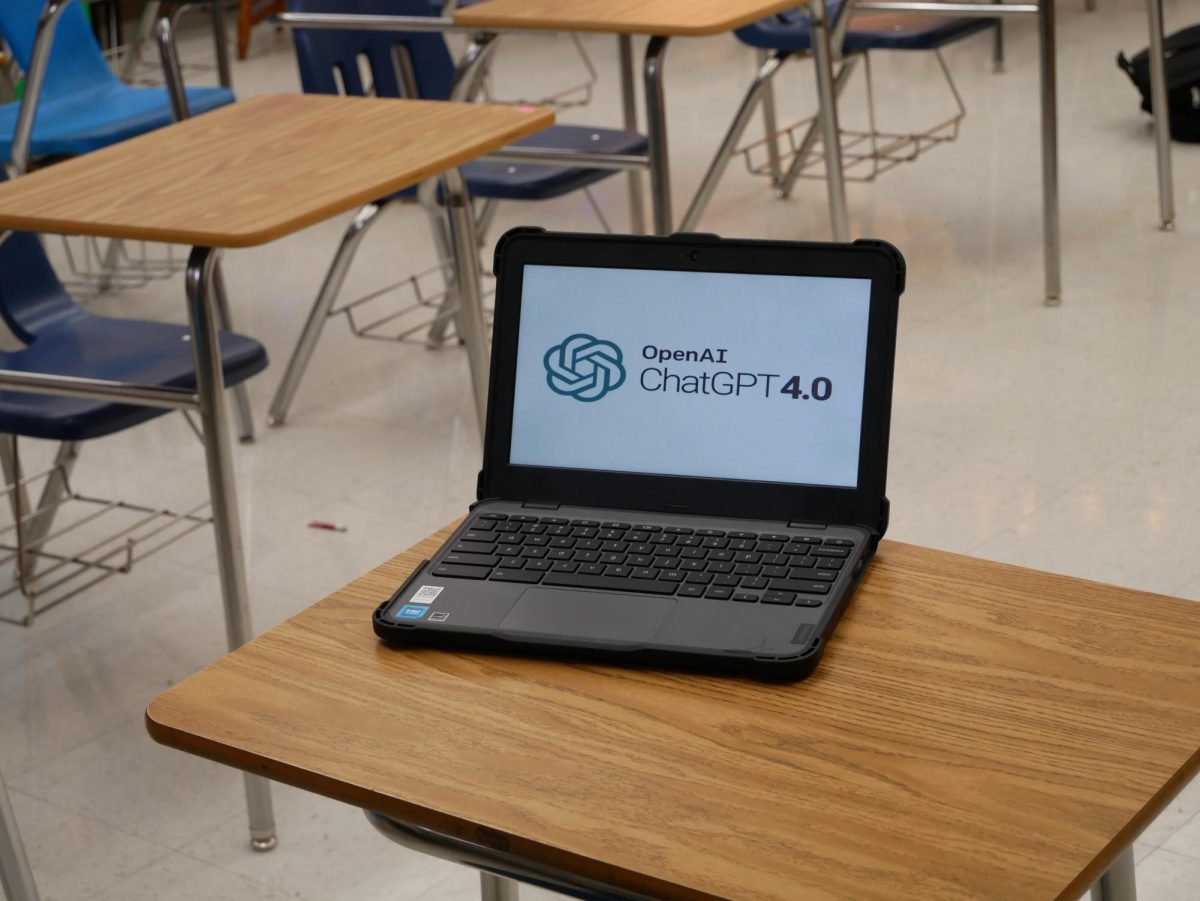Since its release and lightning rise earlier this year, ChatGPT and other AI models have taken our school by storm because students have discovered their utility in all fields from science labs to math problems, history notes, and even photo submissions. This has left a difficult situation for faculty and staff: What do they do with AI?
AI Basics
AI (artificial intelligence) is a unique piece of technology which can do more than spit out candid replies; it can interpret and adapt to questions on the fly.
Though many models have attempted to achieve artificial intelligence, no model has reached this goal until ChatGPT. This revolutionary model, released Nov. 30, 2022, took the world by storm with viral videos and social media posts showing its accuracy and detail in everything from recipes to planning vacations.
Eventually, students found that ChatGPT could help them in school. They could finish an essay that was supposed to take weeks in a matter of seconds, and a teacher would not be able to find any plagiarism because of the program’s uniquely generated responses. Then, students expanded to different fields.
Administration
Mr. Daniel Fallen is an assistant principal who has dealt with issues stemming from AI. He spoke about the problems that lie within the use of AI.
“We discourage people from using AI because it encourages plagiarism. People use it to get ideas to research, but end up copying it,” said Fallen. “AI is a temptation for plagiarism and cheating.”
Fallen also warned, “Tech is catching up, and it is a whole lot easier to find people cheating.”
In short, the administration recommends students to avoid AI.
Math Department
Mr. Perry Hardin is the head of the Math department. He discussed the impact of AI in math.
“It [AI] can help students get through math without knowing what’s going on,” said Hardin. “We want to teach students discipline… [and] we want them to practice in the same conditions they will test in.”
The department does not want students relying too much on AI because they can not use it on assessments.
Hardin went on to state, “I would throw out a caution flag for students to realize if they are relying on [AI] too much. You have to know what you did and what the computer did [to succeed].”
Finally, Hardin mentioned AI can sometimes be used in a productive way: “If you are stuck [on a problem], AI is a good tool [to help].”
Thus, the math department believes AI can be useful at times, but overall students should not rely on it.
Language Department
Ms. Jamie Youngblood is the Language department head. She gave her views on the use of AI.
“We are continuing to use our existing Online Translator Agreement, which prohibits students from using online translation for the majority of activities,” said Youngblood. “Most student work needs to be presented on paper, rather than digitally.”
In short, AI should not be used in the language department.
Arts Department
Mr. Brian Hamelman is the Arts department head and teaches photography. He commented on the complexity of the situation.
“Having one set of rules doesn’t really work for our department,” said Hamelman. “AI can really assist a photographer by improving workflow, but I am against utilizing it to create and generate a final product.”
Hamelman supports the idea of AI aiding but not completely replacing human work in the arts.
For example, Hamelman highlights the AI application, D-NOISE. This application gets rid of the fuzziness in low light photos, which can be very time consuming and frustrating to do by hand. Thus, it eliminates an irritating part of the photography process without interfering with critical human elements such as toning and coloring.
In conclusion, the department’s general viewpoint on AI is that it is okay in certain situations, and each teacher may vary in their policy.
Science Department
Ms. Sherry Brown is the Science department head and one of two chemistry teachers. She discussed AI within the science department.
“[There are] different perspectives from anyone you talk to,” said Brown, “But parameters for AI are important. Since it is new technology, approach it slowly.”
Brown goes on to state her views on how AI can affect students’ learning: “If students are not processing [information], the [human skill of] processing is not being improved. The learning process is not happening.”
Like the Math department, the Science department believes that AI inhibits students from fully understanding and comprehending information.
In general, students should not use AI in the science department.
Social Studies Department
As Social Studies department head, Ms. Atlanta Watts spoke towards their take on AI: “[Our department believes this] needs to be developed on a school level.”
She went on to specify: “The safe thing is that students do not use it [AI]. It is such a slippery slope.”
Thus, the department plans to follow the administration’s stance and recommends avoiding AI in general.
English Department
Ms. Sarah Leadbetter is the head of the English department. She talked about AI’s effects on the field of English.
“In general, we as a department believe that writing should be deeply personal for students. We believe that a student who turns in AI generated written work as their own work has plagiarized,” said Leadbetter.
The department believes that AI takes away from the writing process.
Accordingly, the English department prohibits AI.
Conclusion
Thus, Students should stray away from AI. Although it can be useful in certain situations, it is also a dangerous temptation with serious consequences if used incorrectly.





